Industrial facilities are bustling centers of activity, where production lines efficiently transform raw materials and parts into high-quality finished goods, playing a vital role in the success of businesses. To achieve this, procurement professionals ensure that all necessary resources are readily available to maintain smooth operations. Their work ensures that the facility runs without interruptions, equipping staff with the supplies they need to perform at their best and guaranteeing that the plant's products or services reach the market on time.
In the expansive world of industry, efficient maintenance, repair, and operations (MRO) play a crucial role in ensuring seamless operations and minimizing downtime. MRO inventory is essential for keeping the machinery of commerce running smoothly and reliably, serving as the vital yet often unseen backbone of manufacturing and industry.
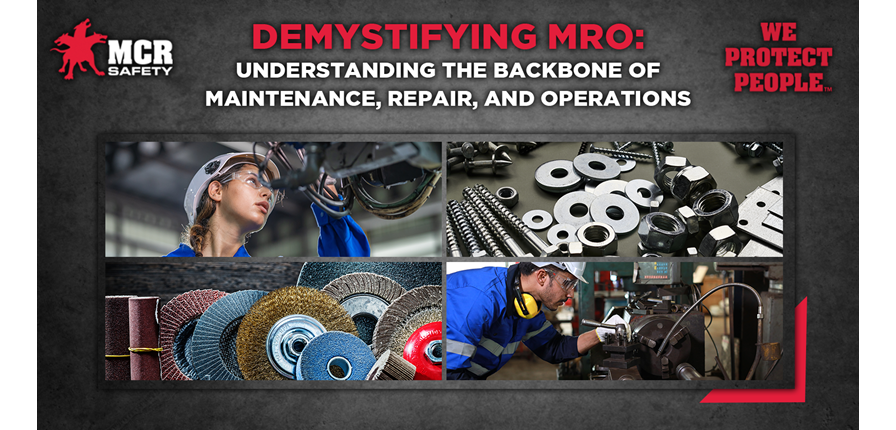
This article explores the intricacies of MRO, its significance across various sectors, highlights top distributors, discusses common MRO products and supplies, examines facility investment costs, emphasizes the importance of PPE safety gear, and addresses frequently asked questions about MRO.
Â
What does MRO stand for?
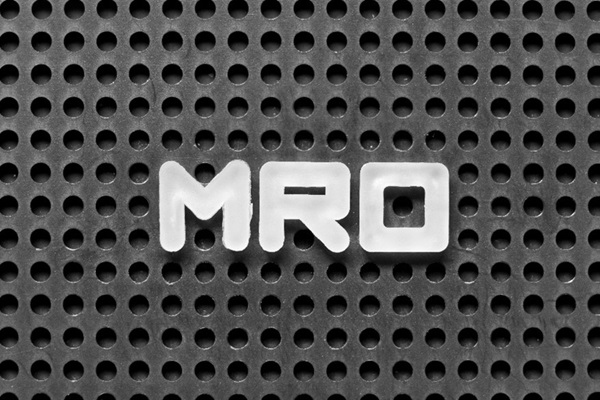
The acronym MRO stands for Maintenance, Repair, and Operations. In some industries, the “O†refers to overhaul, but its core meaning remains consistent—referring to the machinery, tools, and supplies used in daily company operations. MRO encompasses a wide range of equipment, systems, and processes that support production across multiple industries. It includes a vast array of MRO products, MRO inventory, and MRO services. As mentioned earlier, safety gear, or (PPE), personal protective equipment, is typically included under this category, as without proper PPE, a facility cannot operate safely, leaving workers vulnerable to workplace hazards.
In essence, MRO is the unsung hero behind the scenes, working diligently to maintain and optimize production. Unlike raw materials that become part of the final product, MRO elements are not directly visible in the end result but are essential to the process.
Â
Facility Investment Costs

A well-managed MRO stock forecast is one of the most critical components for keeping a facility running with adequate inventory, products, and supplies, but it’s just one part of the equation. The costs associated with MRO span a wide range of expenses, which are pivotal for maintaining operational efficiency, safety, and the longevity of equipment.
Here are some key categories:
- Maintenance Costs: Regular preventive maintenance helps avoid costly breakdowns and extends the lifespan of machinery. MRO investments here include labor, replacement parts, and maintenance tools.
- Repair Costs: Despite preventive measures, equipment can still fail. MRO covers the costs of parts, labor, and machinery needed for repairs, which vary depending on the severity of the breakdowns.
- Equipment Replacement and Upgrades: Machinery and tools may become obsolete or wear out over time. MRO investment includes updating or replacing these assets to maintain or enhance productivity levels.
- Safety and Compliance: Ensuring safety and compliance with industry standards requires significant investment. This includes personal protective equipment (PPE), safety training programs, and upgrades to meet regulatory requirements.
- Inventory Management: A well-stocked inventory of critical spare parts and supplies is essential for quick responses to maintenance and repair needs. The costs include storage solutions and inventory management systems. A MRO procurement manager or specialist is often tasked with ensuring MRO products and MRO inventory are stocked and ready for operations.
Every MRO investment aims to reduce unplanned downtime, boost operational efficiency, safeguard safety, and bolster the company’s bottom line.
Â
Â
MRO Supply Industry
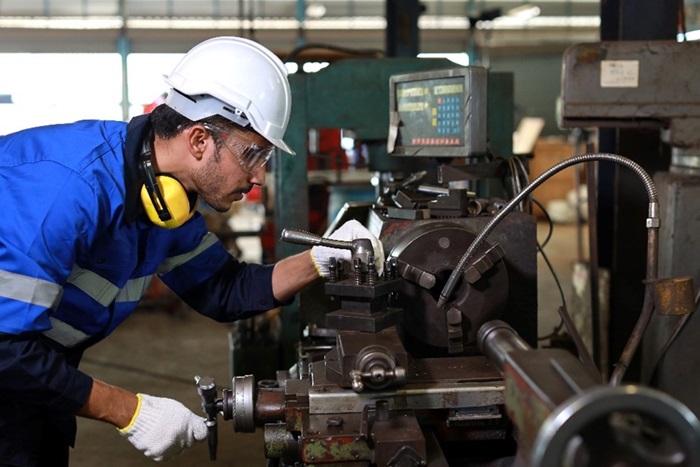
As of 2024, the MRO distribution industry in North America is valued at approximately $130 billion, though some analyses suggest figures ranging from $430 billion to $630 billion. This variation highlights the sector's vast and rapidly growing nature, emphasizing its indispensable role in maintaining equipment, machinery, and facilities.
By 2021, the chemical manufacturing sector had emerged as the largest consumer of MRO supplies, accounting for 18% of the total MRO market. This dominance stems from the industry's interactions with hazardous substances, stringent regulatory compliance, and the maintenance of specialized equipment, all of which require a steady flow of MRO products. A key driver of the industry's dependency on MRO supplies is the critical maintenance of chemical processing equipment, involving an advanced selection of industrial lubricants, greases, adhesives, sealants, and cleaning agents. Each component is vital for the smooth and enduring operation of machinery.
Beyond chemical manufacturing, the following are the top 10 sectors utilizing MRO, listed by market share:
- Chemicals
- Automotive and Transportation
- Electrical and Electronics
- Food and Beverage
- Metal Processing and Foundries
- Mining, Oil & Gas
- Rubber and Plastics
- Wood and Paper
- Construction
- Pharmaceuticals
Looking ahead, the electrical and electronics field is poised for the most substantial surge in MRO demand. The widespread adoption of cutting-edge technology in residential and industrial contexts is prompting enhancements in manufacturing methodologies. Such evolution markedly elevates the demand for MRO distributions, further highlighting the escalating need for safeguarding against electrostatic discharges (ESD), as discussed in our detailed article, "An Overview of Electrostatic Discharge (ESD), Anti-Static Gloves, and ESD Protection."
Typical Products and Supplies
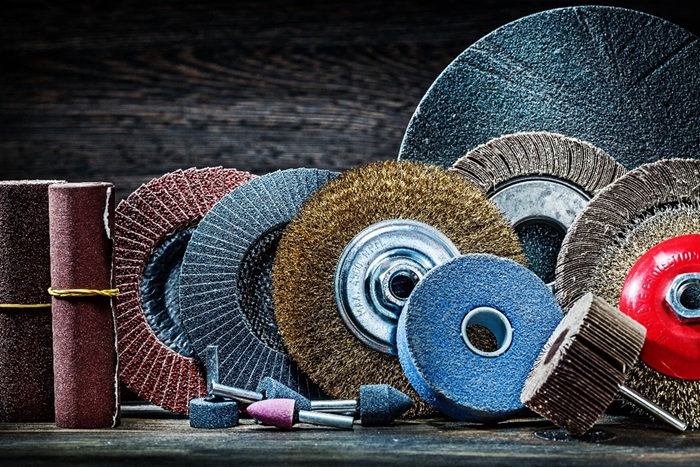
Â
MRO inventory is essential for the success of any business. It encompasses a broad spectrum of products and supplies necessary for maintenance, repair, and operations. This range includes hand and power tools, lubricants, maintenance supplies, and consumables, showcasing the extensive diversity of product categories within MRO.
Below is a compilation of core items categorized under the industrial MRO umbrella:
- Chemicals
- Adhesives
- Ball Bearings
- Brushes
- Chemicals
- Construction Materials
- Cutting Tools
- Electrical Components
- Fasteners
- Hand Tools
- Hoses
- Jan San
- Lubricants
- Machinery Parts
- Pipes and Valves
- Personal Protective Equipment
- Plastics
- Power Transmission Fluid
- Power Tools
- Saws
- Seals and Rubber Products
- Test Equipment
- Welding Equipment
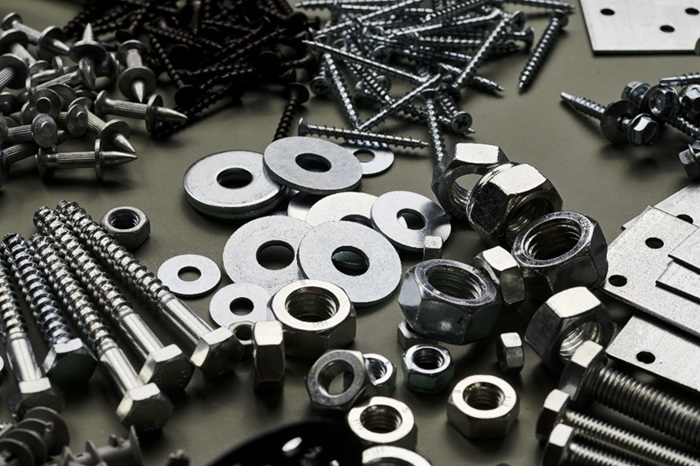
Fasteners, including nuts, bolts, screws, rivets, grommets, cable ties, nails, and pins, are also vital.
Their availability is essential to prevent downtime caused by machines awaiting repair.
Â
Within the context of the three largest categories, here are the common products supplied within each:
- Chemical MRO - chemicals, chemical-resistant materials, corrosion-resistant pipe, filtration systems, pump and valves, safety gear, specialized repair tools, spill containment and cleanup, seals, and gaskets.
- Construction/Facility MRO - doors, fasteners, HVACR, flooring, janitorial supplies, insulation materials, LED fixtures, plumbing supplies, roofing materials, and windows.
- Food MRO - adhesives, cleaning agents, conveyor belting and components, food-grade lubricants, greases, sealants, sanitary pumps, stainless steel fittings, metal detectors and x-ray inspection systems, refrigeration equipment, and water filtration systems.
- Electrical MRO - cables, circuit breakers, connectors, conduits, fuses, lighting supplies, panelboards, power supplies, switchgear, transformers, and wiring.
Among all the products mentioned, Personal Protective Equipment (PPE) and Safety Gear has the most direct impact on individual safety. The absence of adequate PPE can lead to irreversible changes in a person’s life. While workplace accidents can cause injuries or fatalities, proper PPE is crucial for mitigating the severity of such incidents.
Â
Â
Personal Protective Equipment (PPE)

Ensuring the safety of personnel is paramount in maintenance and repair operations (MRO). Personal Protective Equipment (PPE) is instrumental in safeguarding employees from various hazards, thereby securing their well-being. The Occupational Safety and Health Administration (OSHA) has set forth standards and guidelines for PPE to protect workers in diverse industries.
MRO tasks often involve using tools, machinery, chemicals, and potential exposure to various hazards. Consequently, workers are mandated to utilize appropriate PPE, specifically selected based on the risks associated with their tasks. Notable types of PPE employed in MRO operations include:
- Protective Safety Clothing: Comprising coveralls, gloves, aprons, and protective footwear to protect against chemical exposures, electrical hazards, and physical injuries.
- Eye and Face Protection: Employs safety glasses, goggles, and face shields to protect against flying particles, chemical splashes, and other eye hazards.
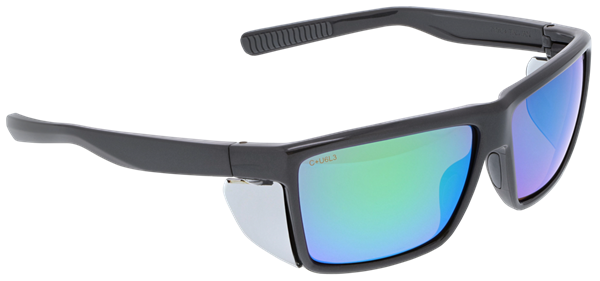
- Hand and Arm Protection: In this category falls all the PPE worn to cover a worker's hands, from cut-resistant gloves to waterproof disposable gloves and leather welding gloves.
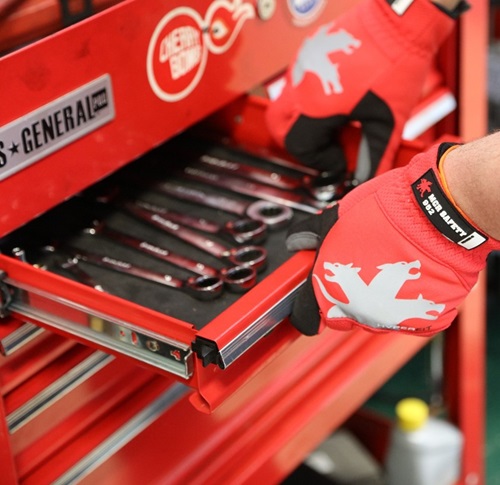
- Head Protection: Hard hats are vital for safeguarding against injuries from falling objects and other head-related accidents within MRO settings.
- Respiratory Protection: Using respirators and masks is critical when encountering airborne pollutants, including dust, fumes, or hazardous substances.
- Hearing Protection: Earplugs and earmuffs are indispensable for preventing auditory damage in settings with high noise levels.
MCR Safety focuses on the first three categories of PPE mentioned. Additionally, we can connect you with any of our 750+ industrial distributors, who stock a comprehensive range of MCR Safety products alongside other essential MRO PPE.
Â
Further Insight into End Use
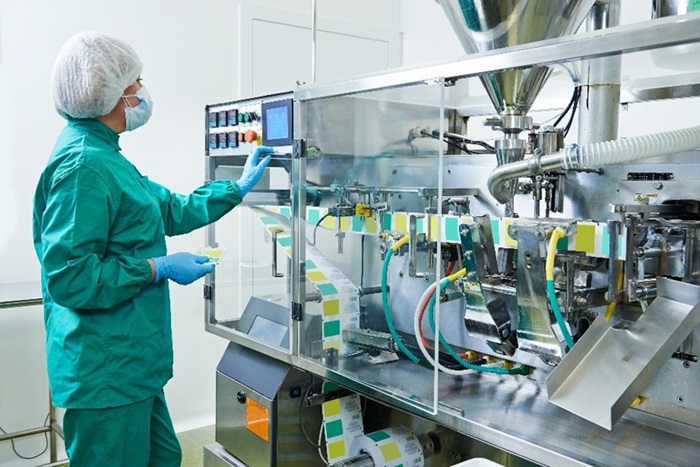
Our in-depth analysis of leading MRO distributors reveals their pivotal role in stocking both crucial MRO and safety supplies, including PPE. These distributors cater to a wide range of industries, as they stock many of the same products: fasteners, Jan San (Janitorial and Sanitation), Power Fluid, Transmission and Ball Bearings, Pipes, and Valves. Based on this product mix, here are some of the critical industries and the reasons based on the product lines:
- Automotive and Transportation: The maintenance of vehicles and transportation infrastructure relies on MRO supplies, with safety products ensuring the safety of workers and the public. Fasteners, transmission, and ball bearings are essential for vehicle maintenance and repair.
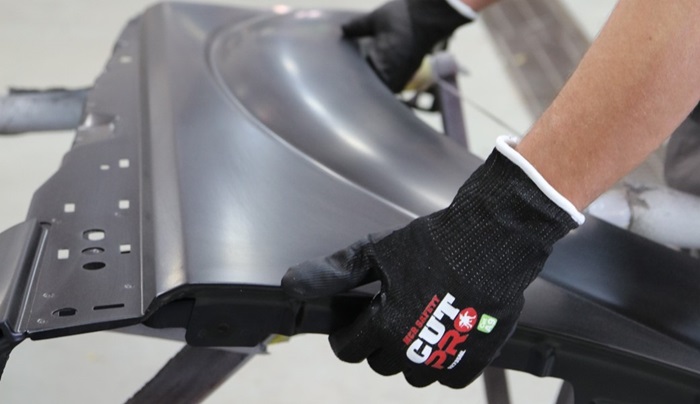
- Construction and Building Services: The construction industry requires a vast array of products, from fasteners for structural integrity to safety gear for onsite workers. Jan San products are essential for maintaining cleanliness and hygiene on construction sites and in finished buildings. HVAC and plumbing products are fundamental to building services, making distributors that stock these items valuable to this industry.
- Energy and Utilities: These sectors require continuous operation of heavy machinery and equipment, making MRO supplies critical. Safety is also a top priority due to the high-risk environments associated with energy production and utility management. Products related to power fluid and transmission systems are likely to be in demand for maintaining energy generation equipment.
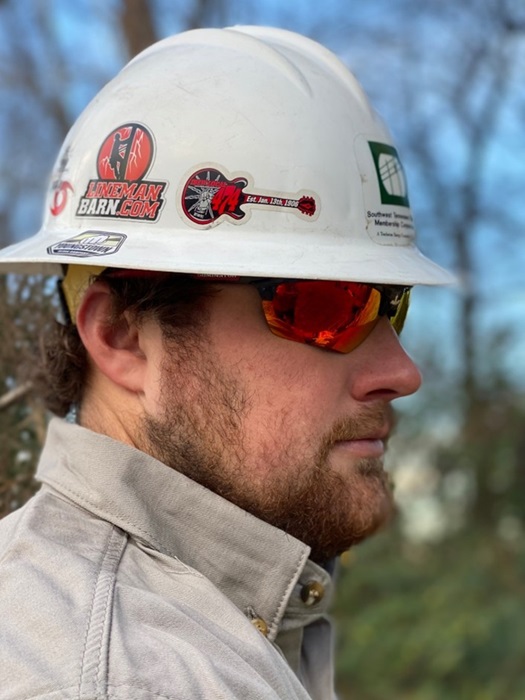
- Healthcare and Hospitals: Safety products are crucial in healthcare settings to protect both patients and healthcare workers. MRO supplies ensure that medical facilities' operational needs are met, including maintenance of medical equipment and facilities. Jan San products are also vital in maintaining the cleanliness and hygiene standards required in healthcare environments.

- Government and Public Sector: Maintenance of public buildings, infrastructure, and facilities necessitates a broad range of MRO supplies. Safety products are essential for public sector employees who perform maintenance and operational tasks, ensuring compliance with occupational health and safety standards.
- Manufacturing and Industrial: This sector heavily relies on MRO supplies to keep machinery and equipment running smoothly. The need for safety products is paramount to ensure worker safety amidst machinery, chemicals, and various industrial processes. Fasteners, power fluid, transmission and ball bearings are critical for machinery maintenance and repair.
Â
The overlapping need for MRO and safety supplies across diverse industries underscores their universal importance and highlights the interconnected nature of modern industrial operations, where efficiency, maintenance, and safety are inextricably linked.
Â
Â
Common Questions

- What is MRO?
MRO stands for the activities, processes, and materials used in the maintenance, repair, and upkeep of an organization's or industry's assets, equipment, and facilities. Covering a broad spectrum of services and supplies, MRO is critical for the smooth operation and extended lifespan of machinery and infrastructure. While MRO components may not be part of the final product or service, their role is indispensable in ensuring operational continuity and maintaining product quality.
- What is MRO procurement?
MRO procurement is the process of obtaining the MRO goods and services needed for a business or organization’s daily operations and maintenance. It includes the sourcing, purchasing, and management of items like spare parts, tools, consumables, safety gear, cleaning supplies, and maintenance services. Efficient MRO procurement is strategic, aiming not only to preserve assets and ensure operations but also to minimize downtime and optimize overall operational efficiency.
- What does MRO stand for in purchasing?
In purchasing, MRO stands for Maintenance, Repair, and Operations. This term denotes the acquisition and administration of the supplies, equipment, and services vital for facility maintenance and repair, along with daily operational support.
- What does MRO stand for in aviation?
In MRO aviation, MRO represents Maintenance, Repair, and Overhaul. This term covers all activities related to the maintenance and repair of aircraft, engines, and components, focusing on ensuring safety, airworthiness, and regulatory compliance.
Â
Â
Indispensable Products

Maintenance, Repair, and Operations (MRO) are universally critical, ensuring the seamless operation of equipment, machinery, and facilities across all industries. For construction, chemical manufacturing, healthcare businesses, and more, prioritizing Personal Protective Equipment (PPE) is paramount for worker safety — a core value championed by MCR Safety."Â
We urge you to contact us with any questions about essential MRO PPE. Leaving questions unanswered can lead to operational downtime or, more critically, compromise worker safety. At MCR Safety, our mission is unequivocal: We Protect People!
Â
Click on the image below to leave us a comment, question, or any concern.
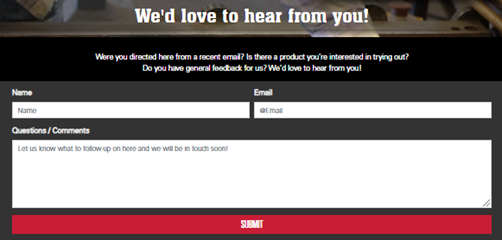
For over 45 years, MCR Safety has proven to be a world leader in gloves, glasses, and garments. Whether you’re stocking up on MRO supplies, carrying heavy materials, or working at a construction site, we are there providing solutions to workplace hazards. It's all part of our commitment to protect people.
No matter the industry, we have the personal protective equipment you need!
 Â
Â
Â
Learn more about MCR Safety by checking out our most recent video. For more information, browse our
website, request a catalog, find a distributor, or give us a call at 800-955-6887.
Â
Â
Â
E-juice Nicotine Salt Kiwi Passion Fruit,Vape Us Nicotine Kiwi Passion Fruit,All Refillable Vape Available Oxva,E Cig E Liquid For Vape
Shenzhen Tianzhu Biotechnology Co., Ltd , https://www.yokaivape.com